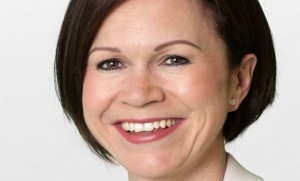'It should allow them to be a long-term survivor' - market reaction to the Bryan Cave Leighton Paisner merger
BLP and Bryan Cave are coming together with a single profit pool and a single, aligned remuneration structure - can they make their transatlantic merger work?
March 05, 2018 at 10:08 AM
5 minute read
 Therese Pritchard and Lisa Mayhew
Therese Pritchard and Lisa Mayhew
Almost exactly two years after talks between Berwin Leighton Paisner (BLP) and US firm Greenberg Traurig ended, the UK firm last week confirmed that its latest attempt to enter the US market had been more successful, with its tie-up with Bryan Cave set to go live this April.
After the very public failure of the Greenberg discussions, last week's partner approval will have come as a huge relief to BLP, which confirmed the negotiations with St Louis-based Bryan Cave in October last year.
When the deal goes live next month, Bryan Cave Leighton Paisner (BCLP) will be among the 40 largest law firms in the world, with combined revenue of about $970m, and roughly 1,600 lawyers working across 32 cities in 11 countries.
Outside the US, the pair have four duplicate offices in London, Paris, Hong Kong and Frankfurt, where Bryan Cave lawyers are ultimately expected to move into BLP's offices.
In contrast to virtually all transatlantic tie-ups to date, the pair are pushing ahead with full financial integration from day one, with a single profit pool and a single, aligned remuneration structure from this time. The decision was made despite the one-off tax hit the integration will incur as a result of the different accounting systems in the US and UK.
Some suggest that BLP is likely to adopt the US firm's calendar year end and cash accounting system, though the firm would not confirm this.
 Speaking to Legal Week sister publication The American Lawyer after the merger confirmation, Bryan Cave managing partner Therese Pritchard (pictured) said the shared profit pool was an important element in incentivising shared work among partners.
Speaking to Legal Week sister publication The American Lawyer after the merger confirmation, Bryan Cave managing partner Therese Pritchard (pictured) said the shared profit pool was an important element in incentivising shared work among partners.
She explained: "In our mind it provides the incentives to find the best people in the firm to service the clients' needs. We think at the end of the day that is a better way to operate. We are all in it together."
According to one rival law firm leader, the tax hit involved means the firms will not have taken the decision lightly.
He says: "As a one-off hit, you're probably talking £20m-£30m, and that would primarily be the UK partners' liability, so I would think they would be staggering that over a number of years. It's a front-loading of a tax liability, so it would only happen once, but you would think it must have been a requirement of the US arm that this happen."
This merger shows that full financial integration is not impossible, but it is going to be very difficult to achieve
One ex-BLP partner warns that despite the commitment of management, financial integration at partner remuneration level will be difficult, even though average PEP levels at both firms are very similar.
They suggest: "I think slotting people into a single equity structure at partner level is quite a tough thing to do across the Atlantic. This merger shows that full financial integration is not impossible, but it is going to be very difficult to achieve. "
Other former BLP partners say that regardless of any tough negotiations on the tax front in order to get the deal over the line, the firm was taking few chances after the high-profile collapse of talks with Greenberg, as "it would be too embarrassing if they had fallen out of bed twice".
Another ex-partner comments: "It would have been a disaster had they not gone ahead because of the failure last time."
A fourth adds: "I think there were people at the firm who would push it through no matter what – there are very powerful people at BLP who would have been lobbying hard for it to happen. I would be surprised if most people didn't vote for it. I think BLP people knew they couldn't easily carry on as they were, and it would be difficult not to support it."
While neither firm has confirmed the percentage of partners voting in favour of the merger, it is understood that at BLP the number comfortably surpassed the 75% of partners required to vote yes to the Greenberg deal.
Since the confirmation of merger talks between the two firms, three partners have left BLP for rivals. Corporate crime and investigations head Aaron Stephens left for King & Spalding in February this year, while in November, hotels group head Karen Friebe joined Bird & Bird and real estate partner Anthea Bamford was recruited by Weil Gotshal & Manges.
While some rivals and market commentators question how the deal will fare in the longer term, overall most are positive about the union.
 One ex-partner says: "This merger achieves the objective that Lisa Mayhew (pictured) set out when she started as managing partner, which was to boost the revenue of the firm significantly. Whether it will work or not I don't know."
One ex-partner says: "This merger achieves the objective that Lisa Mayhew (pictured) set out when she started as managing partner, which was to boost the revenue of the firm significantly. Whether it will work or not I don't know."
A law firm consultant concludes: "This doesn't change BLP's position dramatically – it is not a silly merger, but it is not likely to dramatically change the firm's market position Like Norton Rose Fulbright; it should allow them to be a long-term survivor."
In numbers:
Bryan Cave
- Revenue – $608m
- PEP – $865,000
- Equity partners – 199
- Non-equity partners – 177
- Total headcount – 870
- Offices – 25
BLP
- Revenue – $368.5m
- PEP – $855,000
- Equity partners – 80
- Non-equity partners – 117
- Total headcount – 685
- Offices – 14
NOT FOR REPRINT
© 2025 ALM Global, LLC, All Rights Reserved. Request academic re-use from www.copyright.com. All other uses, submit a request to [email protected]. For more information visit Asset & Logo Licensing.
You Might Like
View All
Top Labor Lawyer and Former Germany Managing Partner Leaves A&O Shearman to Found Boutique Firm
3 minute read
Noerr’s Former Polish Office Merges With Big Professional Services Firm Eying German-Speaking Clients
3 minute read
US-Based Smith, Gambrell & Russell Expands to Italy With Cross-Border Transactional Attorneys
3 minute readTrending Stories
- 1‘Extremely Disturbing’: AI Firms Face Class Action by ‘Taskers’ Exposed to Traumatic Content
- 2State Appeals Court Revives BraunHagey Lawsuit Alleging $4.2M Unlawful Wire to China
- 3Invoking Trump, AG Bonta Reminds Lawyers of Duties to Noncitizens in Plea Dealing
- 422-Count Indictment Is Just the Start of SCOTUSBlog Atty's Legal Problems, Experts Say
- 5Judge Rejects Walgreens' Contractual Dispute Against Founder's Family Member
Who Got The Work
J. Brugh Lower of Gibbons has entered an appearance for industrial equipment supplier Devco Corporation in a pending trademark infringement lawsuit. The suit, accusing the defendant of selling knock-off Graco products, was filed Dec. 18 in New Jersey District Court by Rivkin Radler on behalf of Graco Inc. and Graco Minnesota. The case, assigned to U.S. District Judge Zahid N. Quraishi, is 3:24-cv-11294, Graco Inc. et al v. Devco Corporation.
Who Got The Work
Rebecca Maller-Stein and Kent A. Yalowitz of Arnold & Porter Kaye Scholer have entered their appearances for Hanaco Venture Capital and its executives, Lior Prosor and David Frankel, in a pending securities lawsuit. The action, filed on Dec. 24 in New York Southern District Court by Zell, Aron & Co. on behalf of Goldeneye Advisors, accuses the defendants of negligently and fraudulently managing the plaintiff's $1 million investment. The case, assigned to U.S. District Judge Vernon S. Broderick, is 1:24-cv-09918, Goldeneye Advisors, LLC v. Hanaco Venture Capital, Ltd. et al.
Who Got The Work
Attorneys from A&O Shearman has stepped in as defense counsel for Toronto-Dominion Bank and other defendants in a pending securities class action. The suit, filed Dec. 11 in New York Southern District Court by Bleichmar Fonti & Auld, accuses the defendants of concealing the bank's 'pervasive' deficiencies in regards to its compliance with the Bank Secrecy Act and the quality of its anti-money laundering controls. The case, assigned to U.S. District Judge Arun Subramanian, is 1:24-cv-09445, Gonzalez v. The Toronto-Dominion Bank et al.
Who Got The Work
Crown Castle International, a Pennsylvania company providing shared communications infrastructure, has turned to Luke D. Wolf of Gordon Rees Scully Mansukhani to fend off a pending breach-of-contract lawsuit. The court action, filed Nov. 25 in Michigan Eastern District Court by Hooper Hathaway PC on behalf of The Town Residences LLC, accuses Crown Castle of failing to transfer approximately $30,000 in utility payments from T-Mobile in breach of a roof-top lease and assignment agreement. The case, assigned to U.S. District Judge Susan K. Declercq, is 2:24-cv-13131, The Town Residences LLC v. T-Mobile US, Inc. et al.
Who Got The Work
Wilfred P. Coronato and Daniel M. Schwartz of McCarter & English have stepped in as defense counsel to Electrolux Home Products Inc. in a pending product liability lawsuit. The court action, filed Nov. 26 in New York Eastern District Court by Poulos Lopiccolo PC and Nagel Rice LLP on behalf of David Stern, alleges that the defendant's refrigerators’ drawers and shelving repeatedly break and fall apart within months after purchase. The case, assigned to U.S. District Judge Joan M. Azrack, is 2:24-cv-08204, Stern v. Electrolux Home Products, Inc.
Featured Firms
Law Offices of Gary Martin Hays & Associates, P.C.
(470) 294-1674
Law Offices of Mark E. Salomone
(857) 444-6468
Smith & Hassler
(713) 739-1250









